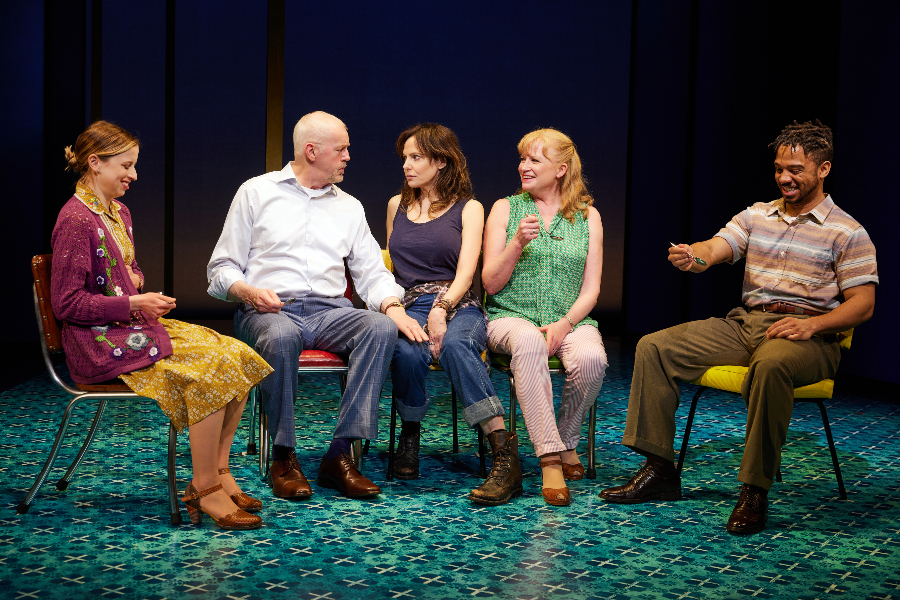

Vogel said that she intended the play ''to get the audience to go along for a ride they wouldn't ordinarily take, or don't even know they're taking.'' And it's true the work begins with a comic blitheness and detachment that immediately disarm. In a recent interview in The New York Times, Ms.

The fishing scene, a delicate fragment in this heartbreaking play of damaged lives, provides not only a metaphor for the way Peck wins a child's affection but also for the play itself. It is hard to say who is the more accomplished seducer in ''How I Learned to Drive,'' which opened last night at the Vineyard Theater: Uncle Peck, surely the most engaging pedophile to walk across an American stage, or the woman who created him. That the scene ends just as he begins to stroke Bobby's head is an act of mercy. Uncle Peck, as the audience has already discovered, is very skilled at reeling in shy and mercurial creatures other than pompanos. ''Nothin' you could do would make me ashamed of you,'' he says in his melodic Carolina drawl.

Uncle Peck appreciates a child's sensitivity. He doesn't get mad when little Bobby (who is never actually seen) cries for a hooked pompano. Uncle Peck, played by the excellent David Morse, is a courtly, perceptive fellow: a relative, in a way, you wish had been around when you were growing up to run interference with the other adults. Looked at on its own, in fact, the whole scene, which comes toward the middle of Paula Vogel's wonderful new play, ''How I Learned to Drive,'' is the essence of a gentle summer idyll. The fishing lesson begins sweetly enough, with an uncle teaching his young nephew about the ''shy, mercurial'' creatures called pompanos and the patience required to catch them.


 0 kommentar(er)
0 kommentar(er)
